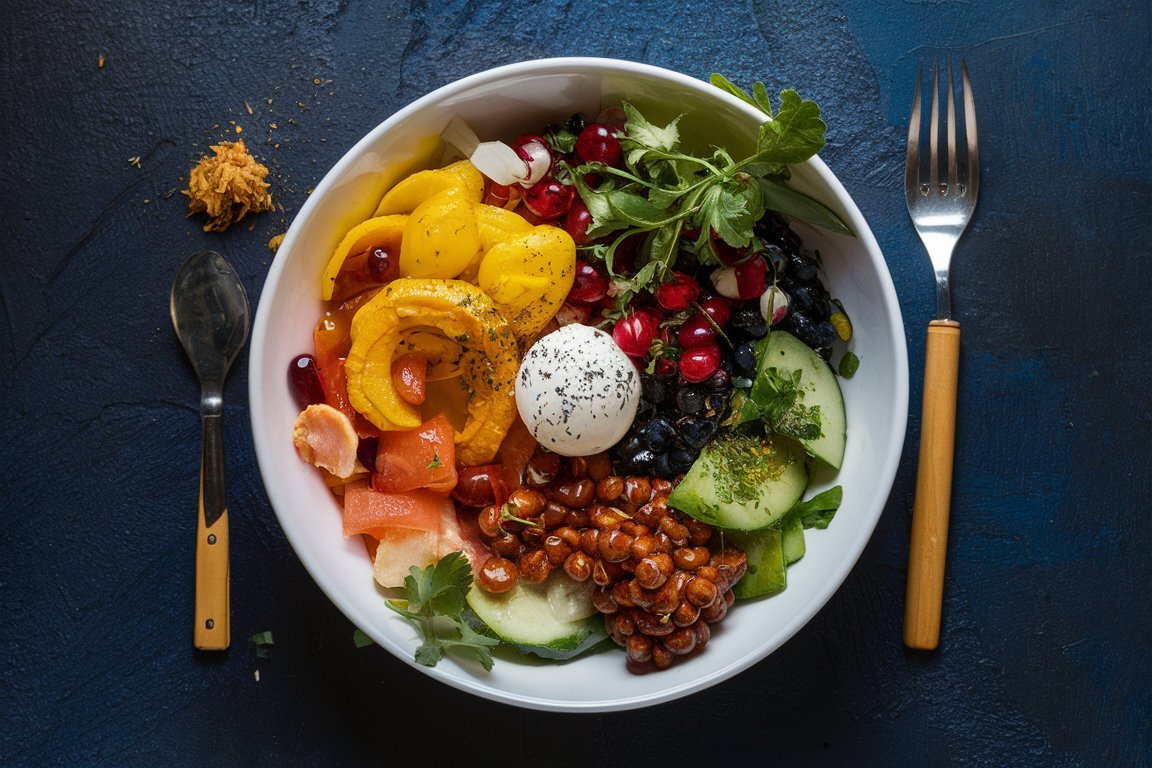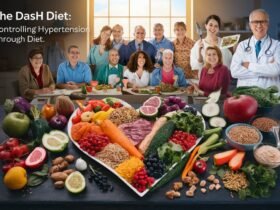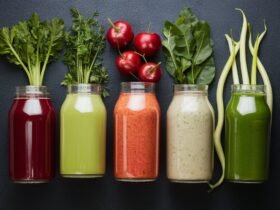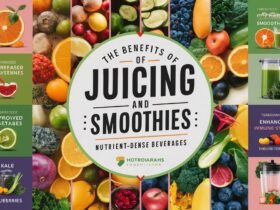Nutrition for Heart Health: Protecting Cardiovascular Well-being
Hey there, my young and curious friends of 2024! It’s your favorite nutrition explorer, Nita Sharda, here to take you on an exciting adventure into the world of heart health. Now, I know what you might be thinking – “Heart health? That sounds like something only grown-ups need to worry about!” But the truth is, taking care of our hearts is important at every age, and the foods we eat can play a big role in keeping our hearts strong and healthy.
Today, we’re going to put on our detective hats and investigate how nutrition can help protect our cardiovascular well-being. But before we dive in, let me make one thing clear – this is not about putting anyone on a strict diet or making them feel bad about what they eat. It’s simply about empowering you with the knowledge and tools to make heart-healthy choices, now and in the future.
So, are you ready to solve the mystery of heart-healthy eating with me? Let’s go!
What is Cardiovascular Health?
First things first, let’s talk about what we mean by cardiovascular health. Your cardiovascular system is made up of your heart and all the blood vessels that carry blood throughout your body. It’s like a superhighway that delivers oxygen and nutrients to every cell and organ, keeping them healthy and strong.
But sometimes, things can go wrong with our cardiovascular system. Over time, our blood vessels can become clogged with a sticky substance called plaque, which is made up of cholesterol, fat, and other materials. This can make it harder for blood to flow through our vessels, putting extra strain on our hearts and increasing our risk of serious problems like heart attacks and strokes.
That’s why taking care of our cardiovascular health is so important – by making heart-healthy choices, we can help keep our blood vessels clear and our hearts pumping strong!
The Role of Nutrition in Heart Health
So, how can nutrition help protect our hearts? Well, the foods we eat can have a big impact on the health of our blood vessels and the risk of developing heart disease. Some foods, like fruits, vegetables, whole grains, and healthy fats, can help keep our hearts healthy and strong. Other foods, like processed snacks, sugary drinks, and high-fat meats, can contribute to the buildup of plaque in our blood vessels and increase our risk of heart problems.
One of the key ways that nutrition can impact heart health is through its effects on cholesterol levels. Cholesterol is a waxy substance that our bodies need to function properly, but too much of certain types of cholesterol (like LDL or “bad” cholesterol) can contribute to the buildup of plaque in our blood vessels.
On the other hand, foods that are high in fiber, like fruits, vegetables, and whole grains, can help lower our LDL cholesterol levels and keep our blood vessels clear. Foods that are rich in healthy unsaturated fats, like nuts, seeds, and fatty fish, can also help improve our cholesterol levels and reduce inflammation in our bodies.
So, by focusing on heart-healthy foods and limiting our intake of unhealthy ones, we can help keep our cholesterol levels in check and reduce our risk of heart disease.
Heart-Healthy Foods to Include in Your Diet
Okay, so now that we know why nutrition is so important for heart health, let’s talk about some specific foods that can help keep our hearts strong and healthy. Here are some of the best heart-healthy foods to include in your diet:
1. Fruits and Vegetables
Fruits and vegetables are like the superheroes of heart-healthy eating! They’re packed with fiber, vitamins, minerals, and antioxidants that can help protect our blood vessels and reduce inflammation in our bodies. Aim to eat a rainbow of colorful fruits and veggies every day, like:
- Berries, like strawberries, blueberries, and raspberries
- Citrus fruits, like oranges and grapefruits
- Leafy greens, like spinach, kale, and collard greens
- Cruciferous veggies, like broccoli, cauliflower, and Brussels sprouts
- Red and orange veggies, like tomatoes, carrots, and sweet potatoes
2. Whole Grains
Whole grains, like whole wheat bread, brown rice, and quinoa, are another important part of a heart-healthy diet. They’re high in fiber, which can help lower cholesterol levels and keep our blood vessels clear. They also contain important nutrients like B vitamins, iron, and magnesium.
Try swapping out refined grains, like white bread and pasta, for whole grain versions whenever possible. You can also experiment with different types of whole grains, like barley, bulgur, and millet, to add variety to your meals.
3. Healthy Fats
While it might seem counterintuitive, eating certain types of fat can actually be good for our hearts! Healthy unsaturated fats, like those found in nuts, seeds, avocados, and fatty fish, can help lower LDL cholesterol levels and reduce inflammation in our bodies.
Some of the best sources of healthy fats include:
- Nuts and seeds, like almonds, walnuts, and flaxseeds
- Avocados
- Fatty fish, like salmon, mackerel, and sardines
- Olive oil
Just remember to enjoy these foods in moderation, as they can be high in calories.
4. Lean Proteins
Protein is an important nutrient for building and repairing tissues in our bodies, including our heart muscles. Choosing lean sources of protein, like skinless chicken, fish, and legumes, can help reduce our intake of unhealthy saturated fats and keep our hearts healthy.
Some great lean protein options include:
- Skinless chicken and turkey
- Fish and seafood
- Legumes, like beans, lentils, and peas
- Tofu and other soy products
- Low-fat dairy products, like milk and yogurt
5. Dark Chocolate
Believe it or not, even chocolate can be part of a heart-healthy diet – as long as it’s the right kind! Dark chocolate that’s at least 70% cocoa is rich in antioxidants called flavanols, which can help lower blood pressure, reduce inflammation, and improve the function of our blood vessels.
Just remember to enjoy dark chocolate in moderation, as it can be high in calories and added sugars. Aim for a small square or two a day as a heart-healthy treat.
Foods to Limit for Heart Health
Just as there are foods that can help protect our hearts, there are also foods that can contribute to the development of heart disease. Here are some foods to limit or avoid for optimal heart health:
1. Processed and Packaged Foods
Processed and packaged foods, like chips, cookies, and frozen dinners, are often high in unhealthy saturated and trans fats, added sugars, and sodium. These nutrients can contribute to the buildup of plaque in our blood vessels and increase our risk of heart disease.
Try to limit your intake of these foods and choose whole, minimally processed foods whenever possible.
2. Sugary Drinks
Sugary drinks, like soda, sports drinks, and sweetened teas, are one of the biggest sources of added sugars in the American diet. Consuming too much added sugar can contribute to weight gain, high blood pressure, and other risk factors for heart disease.
Try to limit your intake of sugary drinks and choose water, unsweetened tea, or sparkling water instead.
3. High-Fat Meats
High-fat meats, like fatty cuts of beef, pork, and lamb, are high in unhealthy saturated fats that can raise our LDL cholesterol levels and contribute to the development of heart disease.
Try to choose lean cuts of meat whenever possible, and limit your intake of processed meats like bacon, sausage, and deli meats, which are often high in sodium and unhealthy fats.
4. Butter and Full-Fat Dairy Products
While some types of fat can be healthy, others can contribute to heart disease. Butter and full-fat dairy products, like whole milk and cheese, are high in saturated fats that can raise our LDL cholesterol levels.
Try to choose low-fat or fat-free dairy products instead, and use heart-healthy oils like olive oil or avocado oil in place of butter when cooking.
The Bottom Line
Phew, that was a lot of information! But I hope this gives you a better idea of how nutrition can impact our heart health and what foods we can choose to keep our hearts strong and healthy.
Remember, taking care of our hearts is important at every age, and the foods we eat can play a big role in reducing our risk of heart disease. By focusing on heart-healthy foods like fruits, vegetables, whole grains, and lean proteins.













1 Comment